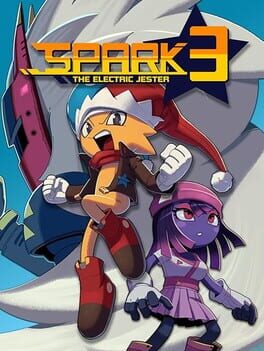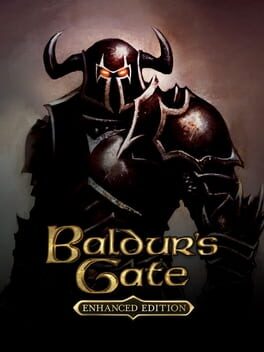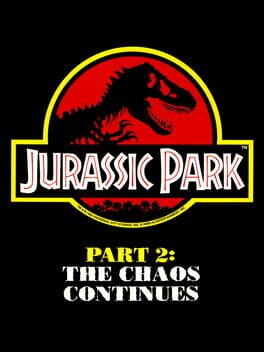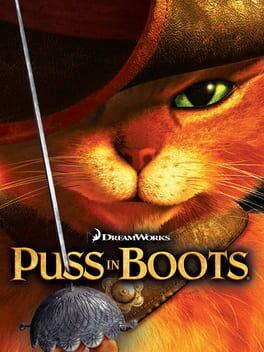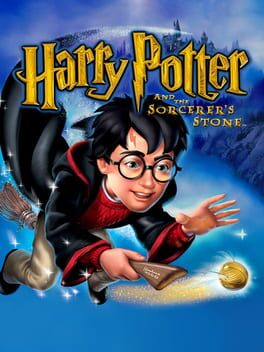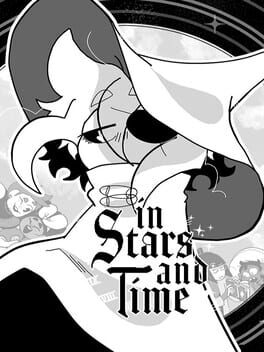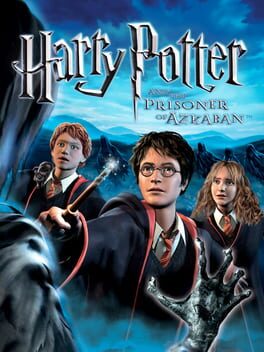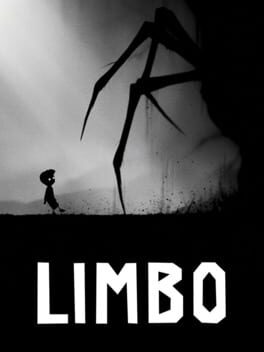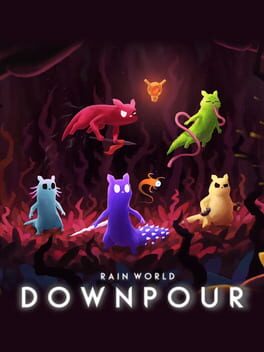Werty800
2022
Sat on this for a while, but despite its charms and fantastic ideas, I think I'd much rather just pick up and reread the many books I've read or was taught about from the period rather than force myself to find something more in Pentiment.
I have the benefit of being somewhat familiar with the setting, so much of that time period was taught to us at school. It is a big part of my country's history, it was our golden age after all. Name of the Rose comes up a lot when discussing Pentiment, one of the many books we had to read surrounding that period of time, and it is definitely very inspired by it, but there's also clearly a great deal of research that went into creating believable and exciting scenarios for the game to remain interesting throughout its entire runtime. I love the way this game looks and that strive for an enjoyable mystery within the framework it set for itself. For most I assume it would be the feeling of something unique and exciting, but for me it was the old, comforting familiar feeling that drew me into Pentiment.
The way you explore the gameworld is through a set of predetermined interactions that are available to you at a given time, you are supposed to select which one you want to spend your limited time on. Some interactions do not pass time, and it is usually indicated by a character specifically asking whether you want to spend it on this particular action. The game sets up these rules to make passage of time a very important narrative and gameplay element, making the most of the time and chances given, dealing with the consequences of the choices made under its constraints, etc.
So when any cracks start to show within the logic of the gameplay or the narrative, or when one begins to clash with another, the believability and investment begin to dwindle. Unfortunately, my playthrough led me to a few too many. The game taught me that walking and exchanging simple words with certain people isn't a time-consuming action, but when I needed one character to be outside in a certain time of day, not an unreasonable one like the middle of the night or anything, I was simply unable to. Said character knew we were supposed to meet and was supposed to pass me a cure for a person that was dying, who was unable to come and get it themselves. But I couldn't do that, the game blocked me from following up on that, even though I was promised earlier that I could come pick it up the same day. I couldn't save the life of a character I really enjoyed interacting with due to an artificial reason, not a narrative one or one that was necessarily the consequence of my actions. This situation arose because it was ultimately a game and didn't set up a proper trigger for me to interact with. What's worse, a completely unrelated trigger with a different character in the same area caused the character I needed to appear to join in this activity, but afterwards they were gone once more and I could not interact with them!
Plenty of other, similar moments began popping up. I uncover a lead that I could undoubtedly confront a person with, but the game didn't set up a trigger for me to do that. I walk up to a person, their family and loved ones and they cheerfully go "Hello!" and that's that, even though I have in my posession a damning piece of evidence that would undoubtedly end up with a death sentence. Pentiment too often clashes with any idea that might pop up in a player's head because its systems are so rigid. This ultimately ties to the story it tries to tell in a way, but it is done so artificially that I simply could not find enough investment or emotion in it.
Nothing but disappointment really sticks with me from my own playthrough, yet when I take a look at it I find it difficult to not feel generally positive towards Pentiment. A clear labor of love only made possible thanks to the GamePass, beautiful art, so many stories of other people going through it and having these fantastic realizations. I know that somewhere where I haven't gone myself there is a potential for an enthralling story, and that it is entirely possible to avoid the trappings I fell into. There are some profound moments that, should enough investment be built, I think will stick with others for a long time. I would lie if the praise it gets didn't bug me somewhat, I experienced a far different game than most, but even I find it to be very charming, so I understand what an amazing feeling a perfect run of this game must feel like. I, too, loved the early moments, when I was fully invested in the history of Tassing.
I have the benefit of being somewhat familiar with the setting, so much of that time period was taught to us at school. It is a big part of my country's history, it was our golden age after all. Name of the Rose comes up a lot when discussing Pentiment, one of the many books we had to read surrounding that period of time, and it is definitely very inspired by it, but there's also clearly a great deal of research that went into creating believable and exciting scenarios for the game to remain interesting throughout its entire runtime. I love the way this game looks and that strive for an enjoyable mystery within the framework it set for itself. For most I assume it would be the feeling of something unique and exciting, but for me it was the old, comforting familiar feeling that drew me into Pentiment.
The way you explore the gameworld is through a set of predetermined interactions that are available to you at a given time, you are supposed to select which one you want to spend your limited time on. Some interactions do not pass time, and it is usually indicated by a character specifically asking whether you want to spend it on this particular action. The game sets up these rules to make passage of time a very important narrative and gameplay element, making the most of the time and chances given, dealing with the consequences of the choices made under its constraints, etc.
So when any cracks start to show within the logic of the gameplay or the narrative, or when one begins to clash with another, the believability and investment begin to dwindle. Unfortunately, my playthrough led me to a few too many. The game taught me that walking and exchanging simple words with certain people isn't a time-consuming action, but when I needed one character to be outside in a certain time of day, not an unreasonable one like the middle of the night or anything, I was simply unable to. Said character knew we were supposed to meet and was supposed to pass me a cure for a person that was dying, who was unable to come and get it themselves. But I couldn't do that, the game blocked me from following up on that, even though I was promised earlier that I could come pick it up the same day. I couldn't save the life of a character I really enjoyed interacting with due to an artificial reason, not a narrative one or one that was necessarily the consequence of my actions. This situation arose because it was ultimately a game and didn't set up a proper trigger for me to interact with. What's worse, a completely unrelated trigger with a different character in the same area caused the character I needed to appear to join in this activity, but afterwards they were gone once more and I could not interact with them!
Plenty of other, similar moments began popping up. I uncover a lead that I could undoubtedly confront a person with, but the game didn't set up a trigger for me to do that. I walk up to a person, their family and loved ones and they cheerfully go "Hello!" and that's that, even though I have in my posession a damning piece of evidence that would undoubtedly end up with a death sentence. Pentiment too often clashes with any idea that might pop up in a player's head because its systems are so rigid. This ultimately ties to the story it tries to tell in a way, but it is done so artificially that I simply could not find enough investment or emotion in it.
Nothing but disappointment really sticks with me from my own playthrough, yet when I take a look at it I find it difficult to not feel generally positive towards Pentiment. A clear labor of love only made possible thanks to the GamePass, beautiful art, so many stories of other people going through it and having these fantastic realizations. I know that somewhere where I haven't gone myself there is a potential for an enthralling story, and that it is entirely possible to avoid the trappings I fell into. There are some profound moments that, should enough investment be built, I think will stick with others for a long time. I would lie if the praise it gets didn't bug me somewhat, I experienced a far different game than most, but even I find it to be very charming, so I understand what an amazing feeling a perfect run of this game must feel like. I, too, loved the early moments, when I was fully invested in the history of Tassing.
Ho-ly shit. What a game.
It emulates so much of what makes Sonic memorable within gaming at large while having this whole refined set of ideas and mechanics that is completely its own. While it's not quite like Adventure, which has you switch out gameplay styles entirely for a set of levels, here it's all either utilizing the same moveset in different ways or entering a vehicle for a part of a level.
And it controls so well, oh so well. The glitches from the second game were all eliminated, so much was added, so many movement options, all these ways to preserve momentum, speed up or correct yourself. The levels do not rely on spectacle during hands-off moments, they rely on constant control and awareness, seeing the challenge ahead from a mile away only to speed through it like a champ. Unlike Spark 2, where I drastically felt the removal of content from the first game within the 3D space, here it's a non-issue due to the sheer amount of options available to you from the get-go, and so many more inside the game's shop.
This game is an absolute miracle. Treats its 2nd game as a stepping stone and simply says: I will singlehandedly make that story cooler. It even has its own absolutely ridiculous story, weird cuts, sudden tone-switches, and more, meaning that Sonic fans should feel right at home. I absolutely do not want to spoil this, but the whole final level is singlehandedly one of the most unhinged things I've seen in gaming in a long while. This, inside a 3D Sonic-inspired game. The absolute freedom of a one-person game, a person who managed to make what is likely the best Sonic-type game since Adventure, is simply overwhelming, joyous and it OWNS.
I'll be revisiting this later down the line, when I will inevitably attempt to actually finish all the 3D Sonic games. I'm unbelievably excited at the prospect of forgetting parts of this game and seeing once again how cool these ideas are. There's just too many to fully remember them all.
Play it.
It emulates so much of what makes Sonic memorable within gaming at large while having this whole refined set of ideas and mechanics that is completely its own. While it's not quite like Adventure, which has you switch out gameplay styles entirely for a set of levels, here it's all either utilizing the same moveset in different ways or entering a vehicle for a part of a level.
And it controls so well, oh so well. The glitches from the second game were all eliminated, so much was added, so many movement options, all these ways to preserve momentum, speed up or correct yourself. The levels do not rely on spectacle during hands-off moments, they rely on constant control and awareness, seeing the challenge ahead from a mile away only to speed through it like a champ. Unlike Spark 2, where I drastically felt the removal of content from the first game within the 3D space, here it's a non-issue due to the sheer amount of options available to you from the get-go, and so many more inside the game's shop.
This game is an absolute miracle. Treats its 2nd game as a stepping stone and simply says: I will singlehandedly make that story cooler. It even has its own absolutely ridiculous story, weird cuts, sudden tone-switches, and more, meaning that Sonic fans should feel right at home. I absolutely do not want to spoil this, but the whole final level is singlehandedly one of the most unhinged things I've seen in gaming in a long while. This, inside a 3D Sonic-inspired game. The absolute freedom of a one-person game, a person who managed to make what is likely the best Sonic-type game since Adventure, is simply overwhelming, joyous and it OWNS.
I'll be revisiting this later down the line, when I will inevitably attempt to actually finish all the 3D Sonic games. I'm unbelievably excited at the prospect of forgetting parts of this game and seeing once again how cool these ideas are. There's just too many to fully remember them all.
Play it.
Incoherent rambling I wrote when playing Baldur's Gate 2. Too much writing to just delete it but the thesis falls apart when you consider that games like Underrail and Colony Ship are still coming out.
Old RPGs Are (Almost) Dead
I do not believe in the idea of video games aging. I do, however, believe that the way we play them does. You cannot replicate the idea that permeated a school playground or an online forum of, for example, what it means to be an RPG. The story they are describing is set inside a game with pixelated graphics that communicate the bare minimum. One may look at a dragon there and a dragon in Elden Ring and just be baffled at how one can match the other. But that potential was there. People found it and extracted it and had the feeling of an epic adventure. It still is there. But it becomes increasingly more difficult to access them, to feel them. They are dying, and some are already dead.
In Baldur's Gate 2, there's a quest that has you investigate a cult where people rip their eyes out to have a chance of an awakening. To go undercover, you have to find a piece of a wand from a place deeper underground. In there, you find a temple, dedicated to a different deity than the one you are investigating. Its followers have forgotten the name of their god and as such his strength wavers and his avatar cannot defeat the evil that is overtaking him and his temple, the purpose of which was guarding the wand piece from evil.
The lesson here is you cannot make anyone remember a thing forever, even if you were to give them eternal life. The human experience is that of many experiences, and we forget. The pain more often than not makes us forget, the pain of aging or just the human condition replacing old positive memories with not just negative ones. They sometimes replace them with nothing. There are just gaps in memory. I cannot make anyone cherish these games, and the games cannot hold up themselves, even if I put out this piece of writing and let it sit forever. The followers of the forgotten deity, by the time the player meets them, hate their god. Not passionately, but dejectedly, thinking they will never be allowed to pass on. Even if you dedicate your life to something, that dedication can ruin it for you.
I gained an appreciation of titles like these thanks to the YouTuber Warlockracy, who does "narrative let's plays" through which he paints the picture of how to find enjoyment in them. I now love Morrowind because I listened to him talk about how it is largely its own medium where a player can tell their own stories, and then proceeds to do just that. My next attempt at Morrowind succeeded because I decided to leave anything I tried before and figured I would like to have this character I am creating to try and gain money fast by working as a guard. I figured a government job would pay well and provide good equipment and I was not disappointed. I am still figuring out how to approach classic Fallout in the way he talks about it, but I keep giving it a try now and then. One day it might click.
He also has a video on Baldur's Gate, but his playstyle is not at all like mine. As such I thought I could try doing something similar to his style of content, but for a more standard playthrough, to maybe help one or two people enjoy these games more. I wrote down tips such as "make as efficient of a party as possible to get through regular fights much easier" and "save up wands for the hardest encounters." But these do not work, do they? They don't make you want to play these games and they don't help you experience them like I did. They may unlock that potential but they don't lead you down that road.
Instead, I think the only way, at my current writing skill level, is to speak of the adventures I had. You might stop playing 10 minutes in. I did, about 20 times in fact, before actually moving on past chapter four. In most of these attempts, I didn't even complete the prologue. You may try co-op only to find out how difficult it is to coordinate on something this hard to grasp for 70 hours. I did. Twice. If at any point you read these descriptions, however, and think "How does one experience these through this jumbled mess of a UI and tiny pixelated character models," all I can say is: play it to find out.
My journey started in Candlekeep, where I was raised to combat spellcasters. My father, Gorion, was one himself and knew how dangerous magic can be. His fascination with magic items always made him feel a bit distant, and the way he spoke made me want to avoid all forms of such power.
Many years later, Gorion told me suddenly that he had planned a trip for both of us. It was something he had been planning for a little bit now, clearly knowing something was afoot. The attempts on my life inside the walls which occurred on the day we were to leave only confirmed his suspicions, and even though he had not told me what was in store for us I trusted him. Outside the city gates, we were ambushed, and Father told me to run. Though he has slain multiple of the assailants, the big one with a horned helmet eventually crushed him.
Here is where my tale begins to grow to epic proportions. Imoen, who grew up with me in the keep, caught up to me, my one new companion, but the empty fields before me seemed to be endless. I could travel in any direction, but I was struck with choice paralysis. Gorion gave me directions to a nearby fortress where friends would await us, and I could not think about any other path. I was scared and wanted directions. Thankfully upon reaching the inn at said location, I found some.
But the mines that I liberated with my new companions soon after were merely the beginning. The tough fight at the very end helped me realize the power that magic can hold, and how communicating with my teammates and friendly spellcasters can turn the tide of battle. What Gorion could achieve was impressive, but he was just one man. Together, maybe this could work. I traveled the land far and wide in search of magical artifacts to strengthen me and my allies before we chased my father’s murderer further.
One of these locations was a forest infested with spiders. It was filled with spider-web traps that would prevent all of my teammates from moving, all the while fast spiders with knife-like legs would slice us up. Each fight cost us time, as we had to rest before we proceeded any further, and were awoken many times by ambushes. It was weeks of sleeping in that one forest, unsure of what would come next. Above it all loomed a big dome made of spider webs. It was a nest of evil. I felt the need to destroy what was inside.
But I could not have expected a human form to control these spiders. It was sprawling, distorted, but still visibly human. She was cursed, as she says. But that is all I learned before she would attack alongside her army of spiders who charged right at me. Knowing I could not take them all in their den, I ran outside, baiting them out in groups and using healing spells and potions before going back in. One of our companions, a wild mage, unleashed fierce fireballs that decimated them as we went back inside but hurt some of us as well. Eventually, we were victorious. Barely standing, we had another rest in front of the structure. Thankfully, this one was uninterrupted.
For my troubles, I obtained Spider’s Bane, a two-handed sword that would prove to be my most reliable weapon for the rest of my time chasing my father’s killer. It was enchanted, but I decided to wield it regardless. I realized my conviction against magic died with Gorion. My training made my body unable to use some trinkets, but if this sword would allow me to avenge him, so be it. I set out for the town of Baldur’s Gate.
There I eventually confronted the villain. To find him I had to be chased around like a criminal, I had to learn of Gorion’s secrets, and my whole worldview was reshaped as I learned of who I was in the grand puppet play of the gods. But I persevered. Though the final battle was chaotic, with summoned allies and my companions falling in battle, I dealt the last blow with a weapon that symbolized my conviction. It turned out the abandonment of the past, back when I first picked it up, was merely a prelude to how much I would have to leave behind.
But (sorry for a terrible transition) I do not want to abandon Baldur’s Gate 1 and 2. I am in the process of playing through the second game for the first time, and though I felt sad enough about the possibility of these experiences fading away to write this piece, I am incredibly excited that the series got the enhanced editions by Beamdog and that the third installment somehow reached the same heights critically as its predecessors did. But it will undoubtedly overshadow them even harder, just like Witcher 3 did to the two games that came before it.
I simply hope that the sort of experiences that are becoming less and less popular are still able to reach some people. They might never be as popular as they used to be, but these are undoubtedly experiences some people still search for. Games like The Elder Scrolls III: Morrowind, Baldur’s Gate 1 and 2, Arcanum: Of Steamworks and Magick Obscura, Fallout 1 and 2 all provide storytelling possibilities that are hard to find even in current year’s incredibly impressive lineup of titles. Only these games provided me with them, so seeing them phased out into the indie sphere at best, and even then rarely, is something I am having a hard time with.
Old RPGs Are (Almost) Dead
I do not believe in the idea of video games aging. I do, however, believe that the way we play them does. You cannot replicate the idea that permeated a school playground or an online forum of, for example, what it means to be an RPG. The story they are describing is set inside a game with pixelated graphics that communicate the bare minimum. One may look at a dragon there and a dragon in Elden Ring and just be baffled at how one can match the other. But that potential was there. People found it and extracted it and had the feeling of an epic adventure. It still is there. But it becomes increasingly more difficult to access them, to feel them. They are dying, and some are already dead.
In Baldur's Gate 2, there's a quest that has you investigate a cult where people rip their eyes out to have a chance of an awakening. To go undercover, you have to find a piece of a wand from a place deeper underground. In there, you find a temple, dedicated to a different deity than the one you are investigating. Its followers have forgotten the name of their god and as such his strength wavers and his avatar cannot defeat the evil that is overtaking him and his temple, the purpose of which was guarding the wand piece from evil.
The lesson here is you cannot make anyone remember a thing forever, even if you were to give them eternal life. The human experience is that of many experiences, and we forget. The pain more often than not makes us forget, the pain of aging or just the human condition replacing old positive memories with not just negative ones. They sometimes replace them with nothing. There are just gaps in memory. I cannot make anyone cherish these games, and the games cannot hold up themselves, even if I put out this piece of writing and let it sit forever. The followers of the forgotten deity, by the time the player meets them, hate their god. Not passionately, but dejectedly, thinking they will never be allowed to pass on. Even if you dedicate your life to something, that dedication can ruin it for you.
I gained an appreciation of titles like these thanks to the YouTuber Warlockracy, who does "narrative let's plays" through which he paints the picture of how to find enjoyment in them. I now love Morrowind because I listened to him talk about how it is largely its own medium where a player can tell their own stories, and then proceeds to do just that. My next attempt at Morrowind succeeded because I decided to leave anything I tried before and figured I would like to have this character I am creating to try and gain money fast by working as a guard. I figured a government job would pay well and provide good equipment and I was not disappointed. I am still figuring out how to approach classic Fallout in the way he talks about it, but I keep giving it a try now and then. One day it might click.
He also has a video on Baldur's Gate, but his playstyle is not at all like mine. As such I thought I could try doing something similar to his style of content, but for a more standard playthrough, to maybe help one or two people enjoy these games more. I wrote down tips such as "make as efficient of a party as possible to get through regular fights much easier" and "save up wands for the hardest encounters." But these do not work, do they? They don't make you want to play these games and they don't help you experience them like I did. They may unlock that potential but they don't lead you down that road.
Instead, I think the only way, at my current writing skill level, is to speak of the adventures I had. You might stop playing 10 minutes in. I did, about 20 times in fact, before actually moving on past chapter four. In most of these attempts, I didn't even complete the prologue. You may try co-op only to find out how difficult it is to coordinate on something this hard to grasp for 70 hours. I did. Twice. If at any point you read these descriptions, however, and think "How does one experience these through this jumbled mess of a UI and tiny pixelated character models," all I can say is: play it to find out.
My journey started in Candlekeep, where I was raised to combat spellcasters. My father, Gorion, was one himself and knew how dangerous magic can be. His fascination with magic items always made him feel a bit distant, and the way he spoke made me want to avoid all forms of such power.
Many years later, Gorion told me suddenly that he had planned a trip for both of us. It was something he had been planning for a little bit now, clearly knowing something was afoot. The attempts on my life inside the walls which occurred on the day we were to leave only confirmed his suspicions, and even though he had not told me what was in store for us I trusted him. Outside the city gates, we were ambushed, and Father told me to run. Though he has slain multiple of the assailants, the big one with a horned helmet eventually crushed him.
Here is where my tale begins to grow to epic proportions. Imoen, who grew up with me in the keep, caught up to me, my one new companion, but the empty fields before me seemed to be endless. I could travel in any direction, but I was struck with choice paralysis. Gorion gave me directions to a nearby fortress where friends would await us, and I could not think about any other path. I was scared and wanted directions. Thankfully upon reaching the inn at said location, I found some.
But the mines that I liberated with my new companions soon after were merely the beginning. The tough fight at the very end helped me realize the power that magic can hold, and how communicating with my teammates and friendly spellcasters can turn the tide of battle. What Gorion could achieve was impressive, but he was just one man. Together, maybe this could work. I traveled the land far and wide in search of magical artifacts to strengthen me and my allies before we chased my father’s murderer further.
One of these locations was a forest infested with spiders. It was filled with spider-web traps that would prevent all of my teammates from moving, all the while fast spiders with knife-like legs would slice us up. Each fight cost us time, as we had to rest before we proceeded any further, and were awoken many times by ambushes. It was weeks of sleeping in that one forest, unsure of what would come next. Above it all loomed a big dome made of spider webs. It was a nest of evil. I felt the need to destroy what was inside.
But I could not have expected a human form to control these spiders. It was sprawling, distorted, but still visibly human. She was cursed, as she says. But that is all I learned before she would attack alongside her army of spiders who charged right at me. Knowing I could not take them all in their den, I ran outside, baiting them out in groups and using healing spells and potions before going back in. One of our companions, a wild mage, unleashed fierce fireballs that decimated them as we went back inside but hurt some of us as well. Eventually, we were victorious. Barely standing, we had another rest in front of the structure. Thankfully, this one was uninterrupted.
For my troubles, I obtained Spider’s Bane, a two-handed sword that would prove to be my most reliable weapon for the rest of my time chasing my father’s killer. It was enchanted, but I decided to wield it regardless. I realized my conviction against magic died with Gorion. My training made my body unable to use some trinkets, but if this sword would allow me to avenge him, so be it. I set out for the town of Baldur’s Gate.
There I eventually confronted the villain. To find him I had to be chased around like a criminal, I had to learn of Gorion’s secrets, and my whole worldview was reshaped as I learned of who I was in the grand puppet play of the gods. But I persevered. Though the final battle was chaotic, with summoned allies and my companions falling in battle, I dealt the last blow with a weapon that symbolized my conviction. It turned out the abandonment of the past, back when I first picked it up, was merely a prelude to how much I would have to leave behind.
But (sorry for a terrible transition) I do not want to abandon Baldur’s Gate 1 and 2. I am in the process of playing through the second game for the first time, and though I felt sad enough about the possibility of these experiences fading away to write this piece, I am incredibly excited that the series got the enhanced editions by Beamdog and that the third installment somehow reached the same heights critically as its predecessors did. But it will undoubtedly overshadow them even harder, just like Witcher 3 did to the two games that came before it.
I simply hope that the sort of experiences that are becoming less and less popular are still able to reach some people. They might never be as popular as they used to be, but these are undoubtedly experiences some people still search for. Games like The Elder Scrolls III: Morrowind, Baldur’s Gate 1 and 2, Arcanum: Of Steamworks and Magick Obscura, Fallout 1 and 2 all provide storytelling possibilities that are hard to find even in current year’s incredibly impressive lineup of titles. Only these games provided me with them, so seeing them phased out into the indie sphere at best, and even then rarely, is something I am having a hard time with.
PSP version - 1/10
The PSP version is devoid of anything and everything that made the console version enjoyable or special. The visuals are obviously a pretty severe downgrade, with a focus on fixed camera shots. You can't ever really admire the castle because you can't see it. This also leads to traditional problems with this viewpoint, that is that when switching perspectives your character turns around if you hold the stick in the same direction for too long. It's more severe here than in most titles I've played. This is only made worse by the worst and most confusing layout of the Grand Staircase from any of these games.
Control issues continue, as they refuse something like holding down a button and using the stick for spellcasting. Instead, you press buttons. But there's more spells then buttons. Then let's do button combos! But oh no, you don't just press them one after another. You have to hold them for just a tiny bit, then hold the other one. How long? I don't know! And I beat it! There's also a cooldown added to it, just to make it even more annoying.
There are some different systems (like a loyalty one of sorts, where you have to help kids from different houses) some different sidequests, most interactables are gone and replaced by newspapers on walls, all of which amounts to running around and either fetching items or trying to combo during extremely frustrating dueling.
I am highly worried about the other handheld games for this part, as well as Half-Blood Prince.
The PSP version is devoid of anything and everything that made the console version enjoyable or special. The visuals are obviously a pretty severe downgrade, with a focus on fixed camera shots. You can't ever really admire the castle because you can't see it. This also leads to traditional problems with this viewpoint, that is that when switching perspectives your character turns around if you hold the stick in the same direction for too long. It's more severe here than in most titles I've played. This is only made worse by the worst and most confusing layout of the Grand Staircase from any of these games.
Control issues continue, as they refuse something like holding down a button and using the stick for spellcasting. Instead, you press buttons. But there's more spells then buttons. Then let's do button combos! But oh no, you don't just press them one after another. You have to hold them for just a tiny bit, then hold the other one. How long? I don't know! And I beat it! There's also a cooldown added to it, just to make it even more annoying.
There are some different systems (like a loyalty one of sorts, where you have to help kids from different houses) some different sidequests, most interactables are gone and replaced by newspapers on walls, all of which amounts to running around and either fetching items or trying to combo during extremely frustrating dueling.
I am highly worried about the other handheld games for this part, as well as Half-Blood Prince.
1984
A truly brilliant sensory overload, constant rule changes, a sign of the times that are only replicated whenever a new medium that allows for such silly expression comes out (like the internet). Very lenient, you can just go ham on the exploration of all the weirdo rooms, one after another. Brilliant stuff.
I theorized in my other review that this style of gameplay fits Part 2 much better, and I was extremely right.
There is exactly zero filler content, and it does a genuinely great job at taking each section of the movie and turning it into a shooting gallery. While the DS version had more characters to play as, here they feel better to play. You get to control Harry, Ron, Hermione, McGonagall, Seamus, Neville, Ginny and Molly. Their sections are short, but so is the game itself, which is honestly its strength.
This is where my praise ends for the most part. The spellcasting, while generally snappier, is still not very fun. You get less spells and each is actually unique, but the pace of the combat is often unexciting, due to the heightened focus on the cover system. Enemies hide more often, there's generally more of them and they can spawn from any direction, as teleportation is a thing, and they all tend to use the shield spell Protego a lot. This creates a very static feel, and the game seemingly acknowledges that by having a plentitude of segments where you have to defend someone. Unfortunately, it just isn't very fun, even on the medium difficulty this pidgeonholes you into a very repetitive playstyle, and it gets old very fast without much else to latch onto.
There are some sections of this game which look neat. The Chamber of Secrets is the single biggest standout, with it being restructured into a pitch-black cave system connected by pipes, with visions of yellow eyes scattered around the darkness. You are incentivized to follow Ron as he casts Lumos, but you can also light up the road with your own spells, and since they have different colors, it can make for a nice visual. The rest of the game, however, is still very gray and unimpressive. I guess even in the movie, the visual of Hogwarts getting attacked isn't as impressive given the fact that the battle largely takes place at the courtyard and not the grounds. Maybe there's only so much they could do.
The level design is often very annoying, with enemies spawning extremely slow or from too many angles. The focus on putting "snipers" with heavy damage spells high up and far away in the latter half of the game is similarly not very fun. Doesn't help that you also begin revisiting the same areas as well.
If you HAVE to play a Deathly Hallows game, this is probably the best one. This doesn't say much unfortunately. The best part of this game comes after the credits, with a wonderful little montage of all the different styles in which Harry Potter games were realized in 3D. Almost feels like they knew some idiot like me would binge them one day.
There is exactly zero filler content, and it does a genuinely great job at taking each section of the movie and turning it into a shooting gallery. While the DS version had more characters to play as, here they feel better to play. You get to control Harry, Ron, Hermione, McGonagall, Seamus, Neville, Ginny and Molly. Their sections are short, but so is the game itself, which is honestly its strength.
This is where my praise ends for the most part. The spellcasting, while generally snappier, is still not very fun. You get less spells and each is actually unique, but the pace of the combat is often unexciting, due to the heightened focus on the cover system. Enemies hide more often, there's generally more of them and they can spawn from any direction, as teleportation is a thing, and they all tend to use the shield spell Protego a lot. This creates a very static feel, and the game seemingly acknowledges that by having a plentitude of segments where you have to defend someone. Unfortunately, it just isn't very fun, even on the medium difficulty this pidgeonholes you into a very repetitive playstyle, and it gets old very fast without much else to latch onto.
There are some sections of this game which look neat. The Chamber of Secrets is the single biggest standout, with it being restructured into a pitch-black cave system connected by pipes, with visions of yellow eyes scattered around the darkness. You are incentivized to follow Ron as he casts Lumos, but you can also light up the road with your own spells, and since they have different colors, it can make for a nice visual. The rest of the game, however, is still very gray and unimpressive. I guess even in the movie, the visual of Hogwarts getting attacked isn't as impressive given the fact that the battle largely takes place at the courtyard and not the grounds. Maybe there's only so much they could do.
The level design is often very annoying, with enemies spawning extremely slow or from too many angles. The focus on putting "snipers" with heavy damage spells high up and far away in the latter half of the game is similarly not very fun. Doesn't help that you also begin revisiting the same areas as well.
If you HAVE to play a Deathly Hallows game, this is probably the best one. This doesn't say much unfortunately. The best part of this game comes after the credits, with a wonderful little montage of all the different styles in which Harry Potter games were realized in 3D. Almost feels like they knew some idiot like me would binge them one day.
Link to the Past is a tremendous jump forward for the series. A beautifully realized world with several memorable moments along the way, great secrets and stupid fun items. Any and all issues I have are nitpicks, but they do pile up to a point where I enjoy this title less than most. I suppose they just affected my experience more than most. I tried to do this without save states for the most part, so I felt the wrath of backtracking for each one of those small things quite a bit.
Hitboxes are very inconsistent. Slashing horizontally is perfect, but doing so vertically is not. From what I gathered, there is some blind spot on top of your model when swinging from one of the angles. This also causes some enemies to get stuck in your model to hit you multiple times while staying inside your hitbox. Best example of this is the Swamp Palace Boss. If you pull one of his balls with a hookshot from the bottom or top and don't move, you will always get hit. If you do so from the side, you won't. Yes, I have died to this many a time. Yes, it was a skill issue.
I think there's a weird choice to have the same sort of idea for progression through the overworld and the dungeons sometimes. I think there are a lot great secrets that are fun to find after going past them several times and realizing you can now interact with them. Trying to find these somewhere around these huge, scrolling screens you're seeing for the first time isn't as intuitive. Some optional secrets late into the game are much more visible than ways of progressing through the main story. Also, having the first required statue pulling puzzle over halfway into the game threw me for a loop. It was the first thing I had to look up. I know, once more, skill issue.
But that's really it. There's some small inconsistencies I noticed but they didn't really do much against my experience. Those two things led me to many a death, but even then I really enjoyed this game. The dungeons are phenomenal, I enjoyed every bit of them. Super clever design, so many fun ideas, so many cool enemies, so much color, so many excellent designs. Again, just such a huge progression for this series. It's really difficult not to appreciate, and I know because I hit my head against the wall here for a WHILE. Probably took me twice as much as beating the two previous games combined... times two.
Hitboxes are very inconsistent. Slashing horizontally is perfect, but doing so vertically is not. From what I gathered, there is some blind spot on top of your model when swinging from one of the angles. This also causes some enemies to get stuck in your model to hit you multiple times while staying inside your hitbox. Best example of this is the Swamp Palace Boss. If you pull one of his balls with a hookshot from the bottom or top and don't move, you will always get hit. If you do so from the side, you won't. Yes, I have died to this many a time. Yes, it was a skill issue.
I think there's a weird choice to have the same sort of idea for progression through the overworld and the dungeons sometimes. I think there are a lot great secrets that are fun to find after going past them several times and realizing you can now interact with them. Trying to find these somewhere around these huge, scrolling screens you're seeing for the first time isn't as intuitive. Some optional secrets late into the game are much more visible than ways of progressing through the main story. Also, having the first required statue pulling puzzle over halfway into the game threw me for a loop. It was the first thing I had to look up. I know, once more, skill issue.
But that's really it. There's some small inconsistencies I noticed but they didn't really do much against my experience. Those two things led me to many a death, but even then I really enjoyed this game. The dungeons are phenomenal, I enjoyed every bit of them. Super clever design, so many fun ideas, so many cool enemies, so much color, so many excellent designs. Again, just such a huge progression for this series. It's really difficult not to appreciate, and I know because I hit my head against the wall here for a WHILE. Probably took me twice as much as beating the two previous games combined... times two.
Perfectly solid, short, little action platformer for the Gameboy. No doubt anyone who owned it would have been satisfied. Levels are tight and not too long, bosses are perfectly solid. Nothing to really drag on at all!
Though this is still dinosaur mass murder simulator, it does benefit from the Jurassic Park theming by having these water creatures and the land dinos as enemies. They all just look appealing for the screen they're on. And the bigger ones look threatening and cool, especially the underwater one that charges from off screen. The only one that looks extremely goofy is the Velociraptor.
Unfortunately it also just does not stand out very much for the platform it's on. Certainly would be ten times more forgotten if not for the branding. It's a one hour drive home kind of game, but undoubtedly one many kids would have picked back up and beaten several times.
Though this is still dinosaur mass murder simulator, it does benefit from the Jurassic Park theming by having these water creatures and the land dinos as enemies. They all just look appealing for the screen they're on. And the bigger ones look threatening and cool, especially the underwater one that charges from off screen. The only one that looks extremely goofy is the Velociraptor.
Unfortunately it also just does not stand out very much for the platform it's on. Certainly would be ten times more forgotten if not for the branding. It's a one hour drive home kind of game, but undoubtedly one many kids would have picked back up and beaten several times.
2011
A Wii shovelware game where you swing the remote to win without much thought, but somehow pushed onto mainline consoles with the control scheme consisting of wildly swinging your analog stick in all directions to completely destroy its lifespan, pretending you are using a spade. It is so clearly not made with other consoles in mind, you have zero control in terms of movement for the most part. It's basically an autoscroller with a few minigames, all of which have the depth of a Warioware boss battle.
There's zero charisma between characters. Knockoff Antonio Banderas speaks for most of it, repeating lines in this game that lasts about an hour total. Took me more because it crashed constantly. Actually a tragedy that this is the only console outing for the character given the recent resurgence in popularity.
Also, there's God of War-like, uh, "romantic" moments. I am not kidding. There's some big fuckoff dangerous situation happening and he just stops, serenades the other cat, goes "pleasure is all yours", there's a screen transition in the shape of a heart, and he goes back to autorunning. Whomst've approved this in a kids game?
There's zero charisma between characters. Knockoff Antonio Banderas speaks for most of it, repeating lines in this game that lasts about an hour total. Took me more because it crashed constantly. Actually a tragedy that this is the only console outing for the character given the recent resurgence in popularity.
Also, there's God of War-like, uh, "romantic" moments. I am not kidding. There's some big fuckoff dangerous situation happening and he just stops, serenades the other cat, goes "pleasure is all yours", there's a screen transition in the shape of a heart, and he goes back to autorunning. Whomst've approved this in a kids game?
The game could easily be trashed for its simplicity and bugs, but that would require me completely ignoring what an achievement capturing the setting truly is. For a child living at the time this franchise was at the peak of its popularity, these movie tie-ins were nothing short of awesome.
Exploring Hogwarts in 3D, even at its simplest form, still fills me with giddinness. It's designed so cleverly, as even though you don't explore that much of it, the rooms differ ever so slightly every time, making for the feeling that the entire castle is alive, ever-changing. The game has this ominous aesthetic, the music is haunting and most of the rooms are dark and dangerous, but it is occasionally intercepted with these joyous discoveries where the music becomes happy once again. Those short moments stick with me over the years: stumbling upon Nearly Headless Nick's hidden napping place, finding a gigantic statue of a dragon, Fred and Goerge popping up out of nowhere to get their 25 beans. I think they made up the core of what made this a great game for children, it added a sense of wonder and amazement, providing a peek behind the courtains of what the movies or books haven't shown/described. They add some personality to this iteration of the story.
Of course this isn't a definitive game based on this particular part of the saga. Every game has elements that other games are missing—you don't get to explore Diagon Alley in this one, but on the other hand you get a longer section with the invisibility cloak.
Games like this make me nostalgic for the time where video games based on pre-existing IPs were extremely common. Sure, they were rushed and often underwhelming compared to other products on the market, but the value of being able to explore the IP itself, taking control of these scenarios and seeing everything about it expanded upon, is worth much more than I realized. Nowadays, when these sort of games are announced they are made out to be a huge deal, but they often end up as underwhelming compared to their contemporaries, and draw just as much inspiration from them. In reality, little has changed, we just get to be teased about these experiences instead of getting more of these tiny, passionate projects like the Harry Potter video games.
Exploring Hogwarts in 3D, even at its simplest form, still fills me with giddinness. It's designed so cleverly, as even though you don't explore that much of it, the rooms differ ever so slightly every time, making for the feeling that the entire castle is alive, ever-changing. The game has this ominous aesthetic, the music is haunting and most of the rooms are dark and dangerous, but it is occasionally intercepted with these joyous discoveries where the music becomes happy once again. Those short moments stick with me over the years: stumbling upon Nearly Headless Nick's hidden napping place, finding a gigantic statue of a dragon, Fred and Goerge popping up out of nowhere to get their 25 beans. I think they made up the core of what made this a great game for children, it added a sense of wonder and amazement, providing a peek behind the courtains of what the movies or books haven't shown/described. They add some personality to this iteration of the story.
Of course this isn't a definitive game based on this particular part of the saga. Every game has elements that other games are missing—you don't get to explore Diagon Alley in this one, but on the other hand you get a longer section with the invisibility cloak.
Games like this make me nostalgic for the time where video games based on pre-existing IPs were extremely common. Sure, they were rushed and often underwhelming compared to other products on the market, but the value of being able to explore the IP itself, taking control of these scenarios and seeing everything about it expanded upon, is worth much more than I realized. Nowadays, when these sort of games are announced they are made out to be a huge deal, but they often end up as underwhelming compared to their contemporaries, and draw just as much inspiration from them. In reality, little has changed, we just get to be teased about these experiences instead of getting more of these tiny, passionate projects like the Harry Potter video games.
2023
This will be so many people's favorite game of all time. It's not mine, and I may have my issues, but I write this because I absolutely wanna celebrate games that have such unbelievably good production, such interesting and rich worlds, characters with expansive perspectives, such beautiful diversity and take something that has already been a staple of several amazing games over the past few years and just experiment with it further and further to see the way players react. It didn't perfectly click with me, but if it does with someone, HOOOOOLY I can't imagine that feeling. It's so rare that games with such incredible production try and reach further than they maybe can, than they maybe should, and not play it safe, and I think even this game maybe goes a bit safe at specific points, but it GOES for it otherwise. It's just such a rare thing to take something that works perfectly well and decide to risk it all. Just, fuck yeah, video games.
Prior to the deciding that I'm going to beat all these games in a row, Prisoner of Azkaban for the PS2 was my favorite Harry Potter video game. It continues to be one of my favorites, but, unfortunately, the format of the first three 6th gen games has its limitations.
The game succeeds primarily as a companion piece. Its aesthetics and soundtrack are excellent, which opens up a whole new approach to the world of Harry Potter. It is the most vivid and unique visual depiction of Hogwarts that isn't based on the movies. There's a fantastic balance of unnerving and weird with the amazing and vibrant, and it manages to fit the more oppressive atmosphere of Prisoner of Azkaban with a very stylized artstyle. The spell challenges are just mind-boggling, there's an underground infestation of creatures which settle near locations where plenty of blood has been spilled (yes, that's the in-game description of the Red Cap enemies) merely few steps outside the Potions classroom, but there's also the wonderful grand staircase, the grounds with different possible weather effects, and Buckbeak flying segments.
Unfortunately the gameplay remains largely the same as its predecessors. While the new spells are cool, and there are few puzzles in the dungeons themselves alongside a few fun bosses, the overworld is largely devoid of any fun secrets, it's all laid out in the open from the very beginning, and only becomes interactable once you obtain the necessary spell or item. The pacing, even that of exploration, is snappy and never overstays its welcome as much as the previous parts, but by following said games this closely it could only ever be fun as a companion piece. There is a necessary level of interest required from the player in order to make them feel like trudging through mediocre gameplay is worth it.
To me, it is. I really enjoyed seeing this reimagining, all the added content, casting spells in real time, but it would be difficult to recommend for someone outside of an already diminishing circle of interest. I've seen and played enough 6th Gen titles to tell that, despite being a genuinely pretty title with a strong aesthetic, there's many games that had it beat in that regard even back when it released.
With that in mind, however, I believe it is once again worth reminding that companion pieces are not any less worthwhile than these experiences. The aforementioned investment required to get into the mood for playing this game isn't difficult to obtain, as the universe is still a strong one, and perhaps Hogwarts Legacy can reignite it for many players out there. The same game may also increase the standards too high for these titles to be worth coming back to, however. Only time will tell.
The game succeeds primarily as a companion piece. Its aesthetics and soundtrack are excellent, which opens up a whole new approach to the world of Harry Potter. It is the most vivid and unique visual depiction of Hogwarts that isn't based on the movies. There's a fantastic balance of unnerving and weird with the amazing and vibrant, and it manages to fit the more oppressive atmosphere of Prisoner of Azkaban with a very stylized artstyle. The spell challenges are just mind-boggling, there's an underground infestation of creatures which settle near locations where plenty of blood has been spilled (yes, that's the in-game description of the Red Cap enemies) merely few steps outside the Potions classroom, but there's also the wonderful grand staircase, the grounds with different possible weather effects, and Buckbeak flying segments.
Unfortunately the gameplay remains largely the same as its predecessors. While the new spells are cool, and there are few puzzles in the dungeons themselves alongside a few fun bosses, the overworld is largely devoid of any fun secrets, it's all laid out in the open from the very beginning, and only becomes interactable once you obtain the necessary spell or item. The pacing, even that of exploration, is snappy and never overstays its welcome as much as the previous parts, but by following said games this closely it could only ever be fun as a companion piece. There is a necessary level of interest required from the player in order to make them feel like trudging through mediocre gameplay is worth it.
To me, it is. I really enjoyed seeing this reimagining, all the added content, casting spells in real time, but it would be difficult to recommend for someone outside of an already diminishing circle of interest. I've seen and played enough 6th Gen titles to tell that, despite being a genuinely pretty title with a strong aesthetic, there's many games that had it beat in that regard even back when it released.
With that in mind, however, I believe it is once again worth reminding that companion pieces are not any less worthwhile than these experiences. The aforementioned investment required to get into the mood for playing this game isn't difficult to obtain, as the universe is still a strong one, and perhaps Hogwarts Legacy can reignite it for many players out there. The same game may also increase the standards too high for these titles to be worth coming back to, however. Only time will tell.
2010
Thrown around for 0$ on multiple occasions by now, with it being free of any price tag Limbo is a pretty great 2-3 hour experience. There's a really thick atmosphere, plenty of great sound effects (love the rumbling) and build-up in presenting its dangers up to around mid-way, when the natural, living enemies completely switch to the mechanical challenges and puzzles.
Its greatest strengths lie the beginning—seeing the spider, the other kids hunting you, and eventually overcoming the big beast—and the transition into the human-made contraptions. You jumpstart a generator and boom: rainfall. Did you open up the ceiling or did you just create a natural phenomena?
There's always been a lot of theorizing about Limbo, but with the release of INSIDE, I'm pretty sure that this was supposed to be like that story: a testing facility for all these different weapons or contraptions, but in here you, the kid the player controls, are breaking in and out of the intended areas in order to find your missing sister. There are some very situational moments, such as only being able to cross a pond because a kid controlled by the bug (the mind-controlling bug returns in Inside) walks into it, allowing you to jump on the dead body, which have me thinking that there is some controlled aspect to it, like something is watching, or that there is an element of "you shouldn't be here."
The later parts are just not as engaging as the opening act. The game should have stuck with the more nature-based dangers. Those were the most tense moments, and if you expect more of that then you are just simply not gonna get it. The bug sections are cool but they don't hold a candle to the spider sections, and I don't think the team behind Limbo really succeeded in telling this story, and that's why Inside reimagines many of its beats but takes it in different directions, for many much more interesting ones. I'm still more into the atmosphere found here, but I will be giving Inside another shot soon, so who knows, maybe I, like everyone else, will just forget Limbo.
For now, I still want to remember it. I think its simple style of presentation and its gameplay were very inspirational for future games, even AAA ones. And there's still ideas worth revisiting in here. Maybe Inside really is a better package for them and I am yet to really appreciate that, but I feel like some stuff is yet to be touched, and as such it comes with a recommendation. Even its worst parts, just like its best parts, are super short, so even if just for stats padding, Limbo is still worth playing.
Its greatest strengths lie the beginning—seeing the spider, the other kids hunting you, and eventually overcoming the big beast—and the transition into the human-made contraptions. You jumpstart a generator and boom: rainfall. Did you open up the ceiling or did you just create a natural phenomena?
There's always been a lot of theorizing about Limbo, but with the release of INSIDE, I'm pretty sure that this was supposed to be like that story: a testing facility for all these different weapons or contraptions, but in here you, the kid the player controls, are breaking in and out of the intended areas in order to find your missing sister. There are some very situational moments, such as only being able to cross a pond because a kid controlled by the bug (the mind-controlling bug returns in Inside) walks into it, allowing you to jump on the dead body, which have me thinking that there is some controlled aspect to it, like something is watching, or that there is an element of "you shouldn't be here."
The later parts are just not as engaging as the opening act. The game should have stuck with the more nature-based dangers. Those were the most tense moments, and if you expect more of that then you are just simply not gonna get it. The bug sections are cool but they don't hold a candle to the spider sections, and I don't think the team behind Limbo really succeeded in telling this story, and that's why Inside reimagines many of its beats but takes it in different directions, for many much more interesting ones. I'm still more into the atmosphere found here, but I will be giving Inside another shot soon, so who knows, maybe I, like everyone else, will just forget Limbo.
For now, I still want to remember it. I think its simple style of presentation and its gameplay were very inspirational for future games, even AAA ones. And there's still ideas worth revisiting in here. Maybe Inside really is a better package for them and I am yet to really appreciate that, but I feel like some stuff is yet to be touched, and as such it comes with a recommendation. Even its worst parts, just like its best parts, are super short, so even if just for stats padding, Limbo is still worth playing.
2023
This review contains spoilers
Downpour's biggest strength is its ability to recontextualize the environment of the world, showing how few changes to the movement system can present a completely new set of fun platforming challenges. The movement in the original game is superb as it was, but I would definitely argue that several of the campaigns here do it even better. The speedrun feel of Rivulet, the ability to move a lot more freely during combat as Artificer, the Gourmand slide, the Spider-saint (that momentum preservation is so sweet) and the Spear-climbing possilibites of Spearmaster (my greatest idea was throwing a spear underneath with a backflip and then one above as well to reach certain ceilings with dropwigs).
The lore elements are consistent, if one were to engage with the lore of the original game that is. I fully understand, however, that the pearl-reading process was a powerfully tedious task, and I wished there was a simpler way to find out the lore. There's the wikis of course, but that's always less exciting than finding stuff out for yourself. Well, now with the added dev-tools, you can experiment at your leisure! So I hope people go back to the main game and check out the lore to see that the Iterators always were emotionally unstable discord users, and slugcats always were purposed beings, even though they are also animals. The player may be able to realize these things better if they complete all three of the OG campaigns, but the pearls go into further detail.
I do understand if the sheer feeling of encountering certain things, and the mystery surrounding each creature or plant is lost when there is a dictionary that can explain everything to you, but it was always there, there were always some answers waiting for those who were interested in the "canon" explanations. If you aren't, Downpour's focus on story will lose you fast. I, however, think that all of them present fascinating ideas to an already fascinating world, one of my favorites, now only cemented as one of the coolest fictional universes of all time.
I think Spearmaster's campaign could be skipped, I believe the devs even pondered removing it, but I did enjoy the fact that playing it allowed me to defeat creatures I never could otherwise. It did have the single worst idea of removing one of this slugcat's key abilities as part of the progression, which I thought sucked. It is my least favorite one, it feels the most out of place. And while I do greatly enjoy this story, all the ideas and moments that reward the curious are there, nothing really comes close to the feeling of the original Survivor playthrough. I replayed parts of it before diving in, and the void sea segment sends shivers down my spine every time, same as meeting Pebbles. There are cool setpieces, but the feeling is different. Perhaps it's because I've gotten so much better through these campaigns that I gained excitement for new challenges and lost some of that fear of the unknown.
But there is no way to ever make another campaign like the first one. Even replaying Survivor I was already much better and knew so much more about how to deal with threats. I have moved from observing the ecosystem and slipping past to engaging with the ecosystem, being a part of it. And in that way I think Downpour's approach is the correct one for a sequel aimed at players familiar with the systems, while also adding some more tutorial messages for the starter Slugcats while sleeping. To me it opens up Rain World to so many more new possibilities, and I'm so happy it truly rewards anyone who wants to engage with the movement system or combat or lore on a deeper level. Though I fully understand if there are people who do not wish for Rain World to be like that.
I've seen the sentiment blaming modders for such an approach, but that's not true. The devs specifically overviewed everything and worked with them on the lore. It was something they wanted to add to the game, something they worked on as well even if a lot of the work was done by the modders. To conclude that this DLC is something detached from their vision of the base game is weird. I've personally never felt that it is. And that's actually the best praise I can give it.
The lore elements are consistent, if one were to engage with the lore of the original game that is. I fully understand, however, that the pearl-reading process was a powerfully tedious task, and I wished there was a simpler way to find out the lore. There's the wikis of course, but that's always less exciting than finding stuff out for yourself. Well, now with the added dev-tools, you can experiment at your leisure! So I hope people go back to the main game and check out the lore to see that the Iterators always were emotionally unstable discord users, and slugcats always were purposed beings, even though they are also animals. The player may be able to realize these things better if they complete all three of the OG campaigns, but the pearls go into further detail.
I do understand if the sheer feeling of encountering certain things, and the mystery surrounding each creature or plant is lost when there is a dictionary that can explain everything to you, but it was always there, there were always some answers waiting for those who were interested in the "canon" explanations. If you aren't, Downpour's focus on story will lose you fast. I, however, think that all of them present fascinating ideas to an already fascinating world, one of my favorites, now only cemented as one of the coolest fictional universes of all time.
I think Spearmaster's campaign could be skipped, I believe the devs even pondered removing it, but I did enjoy the fact that playing it allowed me to defeat creatures I never could otherwise. It did have the single worst idea of removing one of this slugcat's key abilities as part of the progression, which I thought sucked. It is my least favorite one, it feels the most out of place. And while I do greatly enjoy this story, all the ideas and moments that reward the curious are there, nothing really comes close to the feeling of the original Survivor playthrough. I replayed parts of it before diving in, and the void sea segment sends shivers down my spine every time, same as meeting Pebbles. There are cool setpieces, but the feeling is different. Perhaps it's because I've gotten so much better through these campaigns that I gained excitement for new challenges and lost some of that fear of the unknown.
But there is no way to ever make another campaign like the first one. Even replaying Survivor I was already much better and knew so much more about how to deal with threats. I have moved from observing the ecosystem and slipping past to engaging with the ecosystem, being a part of it. And in that way I think Downpour's approach is the correct one for a sequel aimed at players familiar with the systems, while also adding some more tutorial messages for the starter Slugcats while sleeping. To me it opens up Rain World to so many more new possibilities, and I'm so happy it truly rewards anyone who wants to engage with the movement system or combat or lore on a deeper level. Though I fully understand if there are people who do not wish for Rain World to be like that.
I've seen the sentiment blaming modders for such an approach, but that's not true. The devs specifically overviewed everything and worked with them on the lore. It was something they wanted to add to the game, something they worked on as well even if a lot of the work was done by the modders. To conclude that this DLC is something detached from their vision of the base game is weird. I've personally never felt that it is. And that's actually the best praise I can give it.
1993
Jurassic Park for the Genesis plays like a sped up Flashback, or you can play as a raptor if you want. It's unreal how large and how fast Grant's leaps across the screen are, but each level is finished in minutes. There's the huge issue of just not being able to see what's below you or in front of you sometimes, and it is much harder to learn what feels like a layout of a Sonic level at points, but it is certainly doable.
Your reward will be a cool T-Rex head popping out of the background and a boss battle against two raptors where you are not actually able to hurt the raptors, and are supposed to hit the two pedestals holding up the dino skeletons. Bizarre choice for a game where half the time I would rocket some dilophosaurus in the face.
Raptor is just Sonic. He jumps across the length of what feels like two screens. The screen literally cannot keep up with you half the time. Then they put you in the shitty tight canals. Like why? The final boss isn't against Grant either, it's against ONE of the stones from a specific angle.
Bizarre game, but pretty inoffensive and forgettable. I'm sure there will be people who will get a lot less and some who will get a tiny bit more out of it though.
Your reward will be a cool T-Rex head popping out of the background and a boss battle against two raptors where you are not actually able to hurt the raptors, and are supposed to hit the two pedestals holding up the dino skeletons. Bizarre choice for a game where half the time I would rocket some dilophosaurus in the face.
Raptor is just Sonic. He jumps across the length of what feels like two screens. The screen literally cannot keep up with you half the time. Then they put you in the shitty tight canals. Like why? The final boss isn't against Grant either, it's against ONE of the stones from a specific angle.
Bizarre game, but pretty inoffensive and forgettable. I'm sure there will be people who will get a lot less and some who will get a tiny bit more out of it though.

